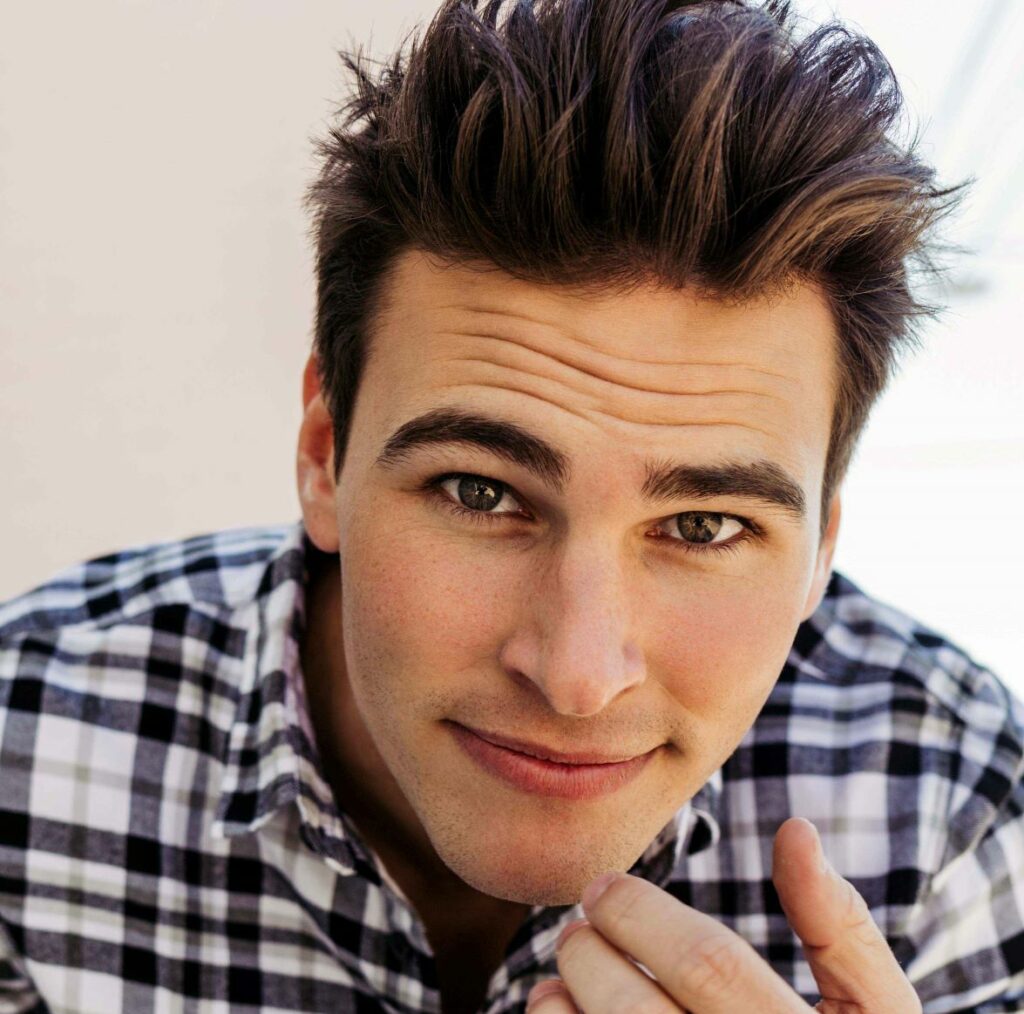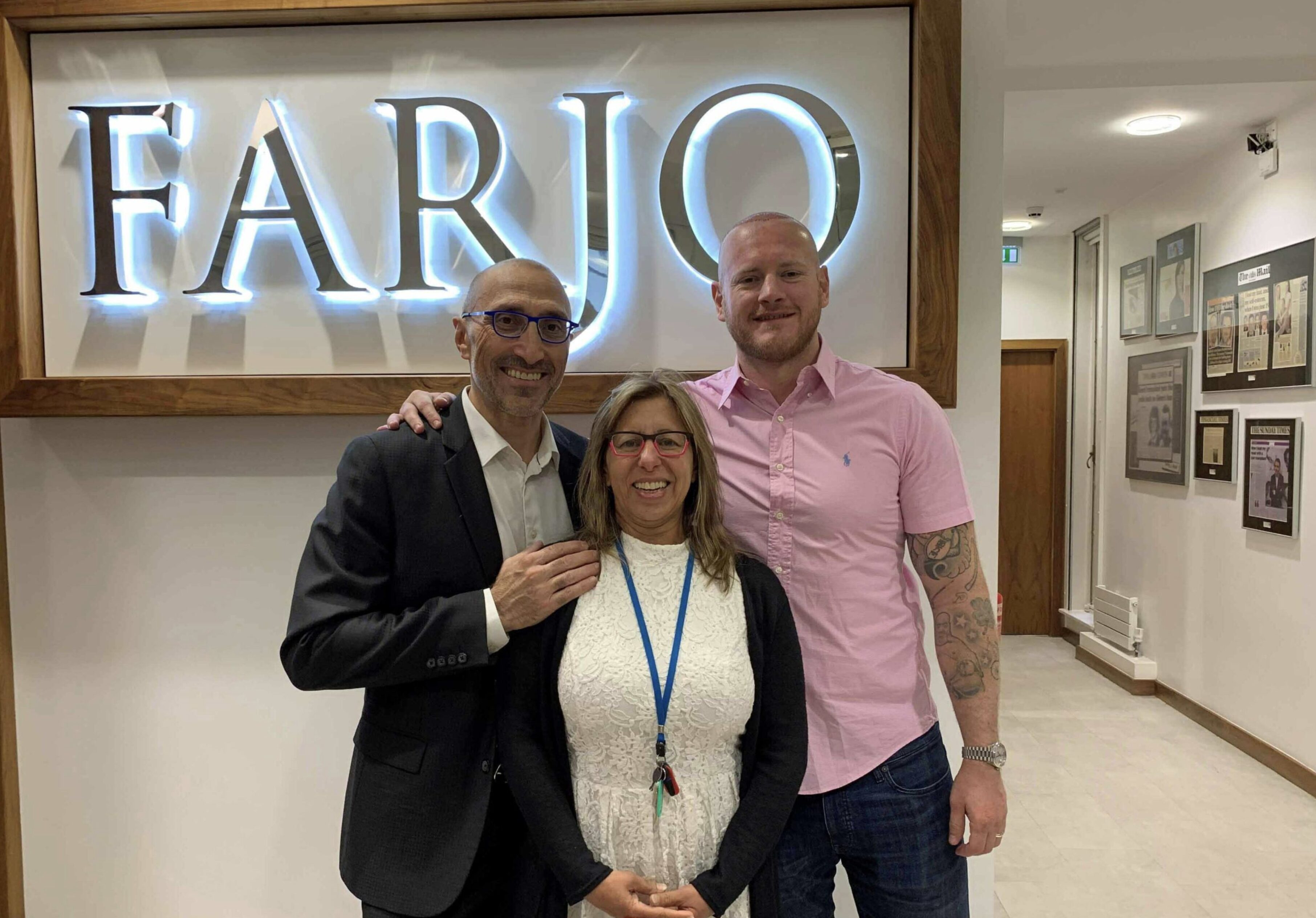
Q&A Dr Farjo answers the most common questions
17th February 2023
Hair transplant surgery is a procedure that thousands of men and women undergo every year in order to combat balding or thinning hair. Here, leading surgeon Dr Farjo answers some of the most commonly asked questions regarding hair loss and the treatments available.
How long will it take for my hair transplant to grow?
One of the most commonly searched questions regarding hair transplants is, “How long for hair transplant to grow?”.
Before undertaking a transplant procedure, our expert team will meet with you to carry out a consultation. This is the most integral part of any treatment we carry out, as it provides our specialists with the opportunity to review your situation, diagnose the reason for your hair loss, discuss what you hope to achieve and advise on the best treatment to meet your requirements.
During the consultation, the team will also run through commonly asked questions such as this. It’s important to remember that everybody, and every hair type, is different. Therefore, results from the treatment will vary from person to person. The consultation process will allow us to make a decision that will generate the best results for each patient.
In general, it will take approximately three to four months post-transplant until you notice new hair starting to appear. Initially, the hair growth may not be noticeable, particularly to the untrained eye or those who are not looking closely at the area, and it could take up to 18 months to see the full result from the healing process through to the growth journey.
When can I sleep normally after hair transplant?
After any procedure, sleep is an integral part of the aftercare and helps to speed up the recovery process as our body uses the opportunity to rest and repair.
Within the first one to two weeks after the transplant surgery has been completed, sleeping may be slightly uncomfortable due to the sensitivity of the scalp. During the first 3 days, we may ask you to sleep with your head slightly elevated to reduce the chance of unnecessary swelling below the transplant. This will also limit the ability to toss and turn throughout the night and get a good night’s sleep.
The hair grafts become reasonably well embedded after 5-6 days, after which it’s more difficult to cause them any damage.
When can I scratch my head after hair transplant?
The effects of the procedure can cause itchiness which can be uncomfortable. We also understand that as scabbing or crusting occurs, the temptation to scratch the area can be heightened. However, despite the temptation to scratch, it’s important to try and completely avoid touching the scalp until at least one week post-treatment to maximise the results. Interfering with the scalp can damage the healing process, meaning results may be impacted, and it could take a longer period to heal and for hair growth to begin.
After around seven days, you can wash your hair reasonably normally.
Balding after hair transplant
Our experienced team is world-renowned for carrying out successful hair transplants that have lasted for many, many years.
By following the correct aftercare, you can increase your chances of success. Maintaining your hair with non-surgical therapies can limit the risk of further balding after the hair transplant and maintain your overall result for longer. Donor hair used for the transplant is different from the previously balding or thinning hair, so the same problems are unlikely to occur.
Depending on the desired outcome of the treatment, some patients may opt for a second transplant procedure to achieve an even thicker overall look.
Do you have to take Finasteride after a hair transplant?
Whilst it’s not integral to use Finasteride or Minoxidil for your hair transplant to work successfully, using it does have proven benefits.
Finasteride inhibits the conversion of testosterone to dihydrotestosterone (DHT) which is one of the reasons that cause hair thinning and, eventually, hair loss. Because of this, many patients who suffer from male pattern baldness will choose to use Finasteride and/or minoxidil after their transplant in order to prevent future hair loss.
How long after the transplant can you reintroduce alcohol?
After your treatment, you may be wondering, “When can I drink alcohol after the hair transplant?”
Alcohol is known for dehydrating our bodies, and hydration is key to a successful recovery from any procedure, generally speaking. From a hair transplant point of view, alcohol increases the size of blood vessels in the skin, and this, in turn, can cause too much bleeding during surgery. Whilst it’s important to avoid alcohol for a minimum of 48 hours before your procedure for this reason, we always recommend avoiding alcohol for at least 24 hours following the treatment.
When is the best time to get a hair transplant?
There is no ‘best time’ from a medical point of view. Most of our patients book their procedures to suit their convenience in terms of time off work or being able to recover in private.
What is the best age to get a hair transplant?
Some people can begin experiencing hair loss and thinning as early as their teenage years. It is our recommendation that those under the age of 25 generally wait until they are in their mid-late 20s before undergoing a hair transplant.
Performing the hair transplant surgery too early makes it difficult to plan appropriately, as future hair loss can be less predictable. This may cause patchy results where the hair continues to fall out. Therefore, further treatment is more likely to be required in the future when donor hair becomes more limited at the same time.
From the ages of 25 and over, if you are in good health, there is no best recommended time to have a hair transplant, and there is no upper age limit to undergo the procedure either. Individuals need to be assessed according to their own hair loss history and circumstances. We carry treatments out on patients of all ages and during all stages of their lives with fantastic results.
To find out more about the best age to get a hair transplant, click here.


